What If Hillary Never Married Bill? Curtis Sittenfeld Explains Her New Novel Rodham
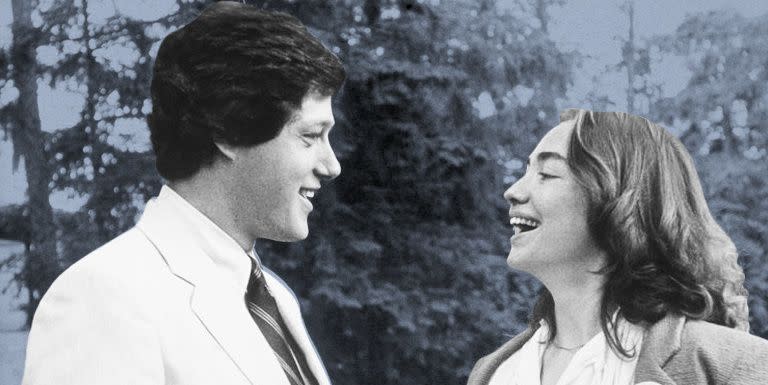
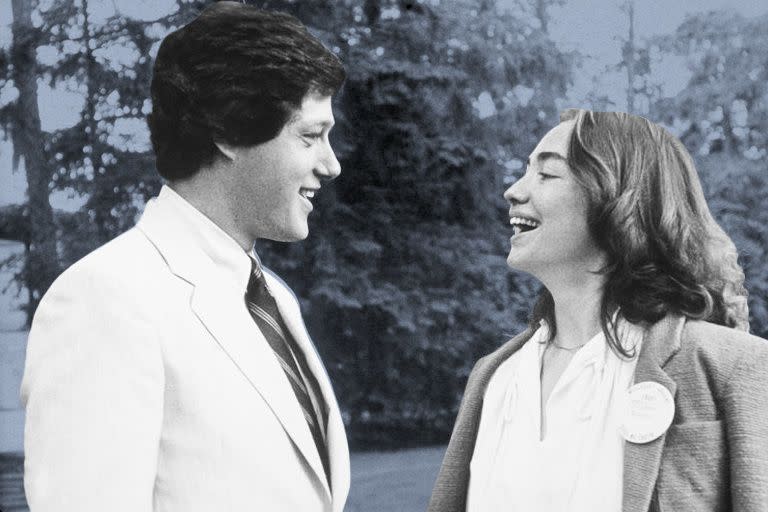
Imagine what was going through Hillary Clinton’s head the night of the 2016 Democratic National Convention, when she became the first woman to earn the presidential nomination from a major political party. That was the proposal to Curtis Sittenfeld from the editors of this magazine in 2016. Clinton had gone from First Lady to Senator to Secretary of State to presidential hopeful. Hadn't she been written about enough? What could I possibly add? Sittenfeld thought. But the author of American Wife, a fictional account based loosely on the life of First Lady Laura Bush, went to work nonetheless on what became the short story "The Nominee."
In the months following the story's publication, Clinton’s political path took an unexpected turn when she lost to Donald Trump. From there, Sittenfeld’s new novel, Rodham, which comes out today, was born. In Rodham, Sittenfeld images what would have happened if Hillary had never married Bill, and consequently, how the 2016 election may have been different. Unlike in American Wife, Sittenfeld uses the real names of Hillary, Bill, Donald (Trump), and others. Weaving real details such as Hillary's time at Wellesley and Yale with fiction—Hillary and Bill's breakup and the butterfly effect of that decision being the most obvious example—makes for a result that is as fascinating as it is disorienting.
We talked about what it was like to completely reimagine the life of an incredibly famous—and still living—person. “I think that I underestimated how much people would find the blend of real and fictitious kind of mind-bending,” Sittenfeld she said. “I think that I was operating by my own internal novelist's logic, and I was like, ‘This all totally makes sense.’ And now I feel, mostly in a good way, people are like, ‘Oh my God, what have you done?’”
Esquire: The first time you fictionalized Hillary was for the 2016 magazine piece. Tell me about how that came about.
Sittenfeld: The assignment was very specific. The editor, Tyler Cabot, said, "Do you want to write a short story from Hillary Clinton's point of view as she's accepting the Democratic nomination for president?"
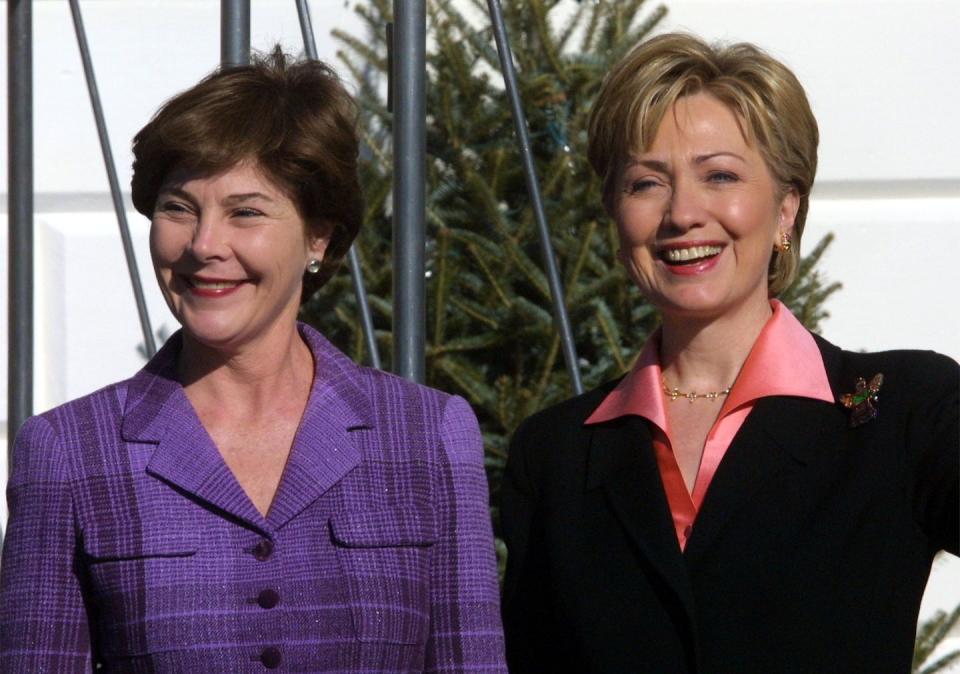
I just thought, Oh, there's just something very interesting about this. Because of having written American Wife, which is a fictional retelling of the life of Laura Bush, I had been invited to write essays about Hillary in 2015 and 2016 and I had declined because I didn't feel like I had anything, any sort of analysis to offer on her that had not been offered elsewhere by other people. But writing a short story really flipped that for me. And so instead of thinking about, "What does Hillary mean to the American people?" or "What do the American people think of Hillary?" the question became "What does Hillary think of the American people?" And it turned out that I have a ton to say about that topic.
When you decided to make it into a book, did you ever think, "I'm going to do what I did with American Wife and not actually use her name but be inspired by her," or you were always going to use her name?
I did consider not using real names, but American Wife fictionalizes a real and pretty straightforward timeline, whereas Rodham creates this alternate timeline. I actually thought that it might be confusing or distracting for a reader if I changed the timeline and changed the names, where they might think like, "Oh, I thought this might be about Hillary and Bill because these two characters are at Yale Law School in the early '70s, but then it goes in a totally different direction." It was almost just trying to simplify the story that made me keep the names because I feel that it's so clear that the story is fiction as you continue reading that it's okay to use the real name because everyone knows that I'm telling a story that didn't really happen.
Were there hurdles with permissions or legal risks or anything like that with using real names?
The book did undergo legal review, and the real names are there. So, I think that's the answer to that question. I did not get permission from Hillary Clinton to write this novel.
Hillary Clinton is so polarizing, which the novel addresses. Did that impact how you wrote it? Were you thinking like, "If I change the story, people are going to interpret it to mean this about the real person”?
It's interesting because obviously the word "polarizing" is used about her a lot. But I really think that that word says more about the American people than it does about Hillary.
I mean obviously there are different ways to package a book. My editor and I talked about different titles. One of the titles was Significant Others. And let's say the title of the book was Significant Others, and then the image on the cover was a woman whose head you couldn't see, but you could see that she's wearing a pearl necklace and a suit jacket.
And so it could've been evoking a powerful woman, but not very specific. And thereby it might attract some readers who wouldn't buy a book about Hillary Clinton but might buy a vaguer book about women in power.
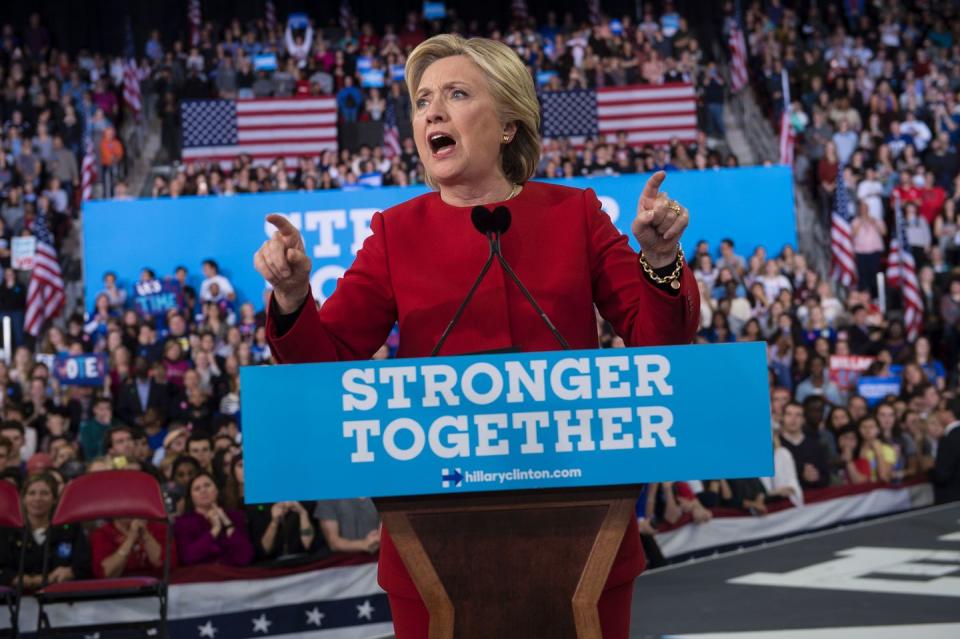
I just didn't want to try to take that path. This book, it's very much fiction, but it's fiction about Hillary. I don't see any reason to pretend it's not. I think that this book will be very meaningful and very gripping to some readers, and I think it will probably be off-putting to other readers, and I'm OK with that. I don't think a book exists that's for everyone, and it's not my goal to find out if there is one.
Hillary not marrying Bill is really where the story diverges from what really happened. Did you go into writing the novel thinking that marrying Bill affected Hillary's political chances in a negative way?
I don't think my view is that clear or that simple. I do think that obviously the 2016 election was extremely close. So if any one of maybe 15 things had been a little bit different, it seems like the outcome could've been different. Perhaps if she was not married to Bill or if she was married to Bill but a few circumstances in their lives or their marriage had been different, maybe she would be [president].
To some extent I'm asking that question, but I don't think that's really the heart of the novel. I think my focus is actually maybe more general than that where it's really thinking about fate versus free will and the butterfly effect and how potentially small choices that any of us make can have... Do they have huge consequences, or does our life resemble itself no matter what small choices we make?
In my adult life I've lived in a few different places. If I live in Minneapolis, am I living essentially a very similar life to the one I'd be living if I lived in Phoenix or in Charlotte, North Carolina? Or am I leading a completely different life? And I don't know the answer to that question, but it's interesting to me.
Tell me about how you researched the book.
When I wrote American Wife, I read Hillary's memoir, Living History. This was in 2007, and as research, just because she had been a recent First Lady. And so I felt like I kind of had an overview of her life and her upbringing and the timeline of Wellesley, then Yale, then the Watergate impeachment inquiry and then Arkansas. So I started writing, but I actually did realize, "OK, I need to have a firmer handle on a lot of different aspects of this."
I think was the most influenced by Carl Bernstein's biography of her, which is called A Woman in Charge. I was certainly influenced by Amy Chozick's book about covering her on and off for 10 years, including the 2015 campaign for the New York Times. Bill's memoir is about a thousand pages and I read the first 240 pages up to the point when they get married. I read What Happened, her 2017 book.
There was a podcast created by the Clinton Foundation that was essentially a Hillary 2016 campaign podcast. And I did not know that it existed in 2016, but I listened to it later. That was very instrumental in helping me in an almost literal way hear her voice. And it was actually revelatory because... The host of it is someone named Max Linsky, who seems like the sort of prototypical male podcast host. But he establishes early on that he's pro-Hillary, which was not surprising given that it's a campaign podcast. But the thing that's really weird is it's literally kind of jarring to hear someone interview her who clearly likes her and is regarding her with respect instead of with kind of reflexive skepticism.
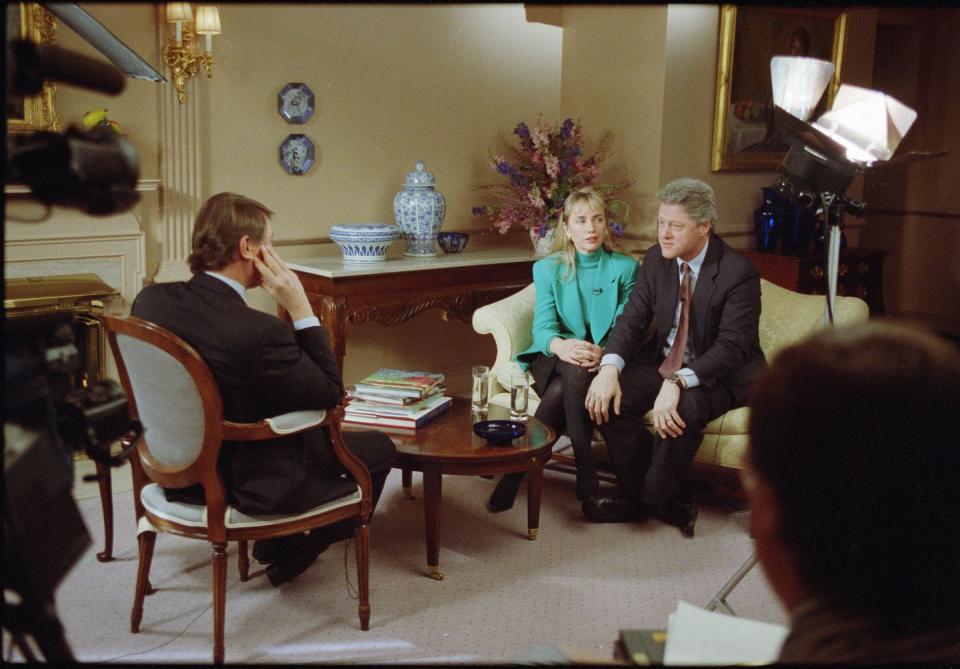
The Clintons entered the White House when I was in high school. For my entire adult life, I've seen many interviews with her; I've heard her discussed by pundits often, and there is always this kind of tone of, I don't know, disapproval or cynicism or wariness when it comes to Hillary Clinton. There's rarely outright admiration. And I think that not surprisingly, I think that affects how she responds and that she's pretty guarded in a lot of interviews and that she was much less guarded in this one.
Her relationship with journalists is something that you explore in the Esquire essay, but also throughout the book. And I was curious where that interest came from.
Well, when I graduated from college, I interned as a general assignment reporter at a newspaper in Charlotte, North Carolina, actually, and then went to work for a business magazine that was then in Boston. So I don't think that most serious journalists would look at me and think of me as a journalist, but certainly up until the time my first book, Prep, came out, I definitely supported myself primarily with journalism. I freelanced for Teen People, which no longer exists. And so I have been on both sides of interviews, and I do think it's a very interesting dynamic. I guess it's a very meta thing to say right now, but an interview, especially a one-on-one interview that's for print or that's not being recorded visually, mimics a social interaction, but isn't primarily a social interaction. It's a very layered and ambiguous encounter for two people to have.
Yes, that’s true.
I'm going to write a short story about this conversation. Just kidding. [Laughs.]
It's a weird thing because a political candidate is in the position of being able to grant or deny access to themselves, but then the journalist has this power. The way you choose words can imply very negative or critical things without even outright saying them and get away with it. And so there is this weird competition for control, I think, between the journalist and the candidate, especially for someone who's trying to get elected.
I do think of this sometimes in the context of my being a novelist, and on one hand of course I hope that my books will sell and people will want to buy them. But it isn't like running for office where it's like if any one person says, "I want to read your book," I don't think like, "Let me convince you otherwise." I think, "That's OK."
Speaking of research, I’m curious how you decided to stick to real life events versus where to just spin it off and take it in a totally different direction because her backstory is pretty close to Hillary Clinton's real backstory.
Right. Well, I actually interpreted my own premise very literally, except when I didn't, which is to say I would think, "Okay, if Hillary and Bill met at Yale and fell in love and thought about getting married but then didn't, what are the literal ways her life would be different?" And it's like, well, the 1992 presidential election would be different because she would not be the person married to Bill Clinton when he was running for president. Or you could say, "If she ran for Senate but she wasn't married to him, how would she be seen differently?" And I think she'd be seen much more like Elizabeth Warren or Amy Klobuchar.
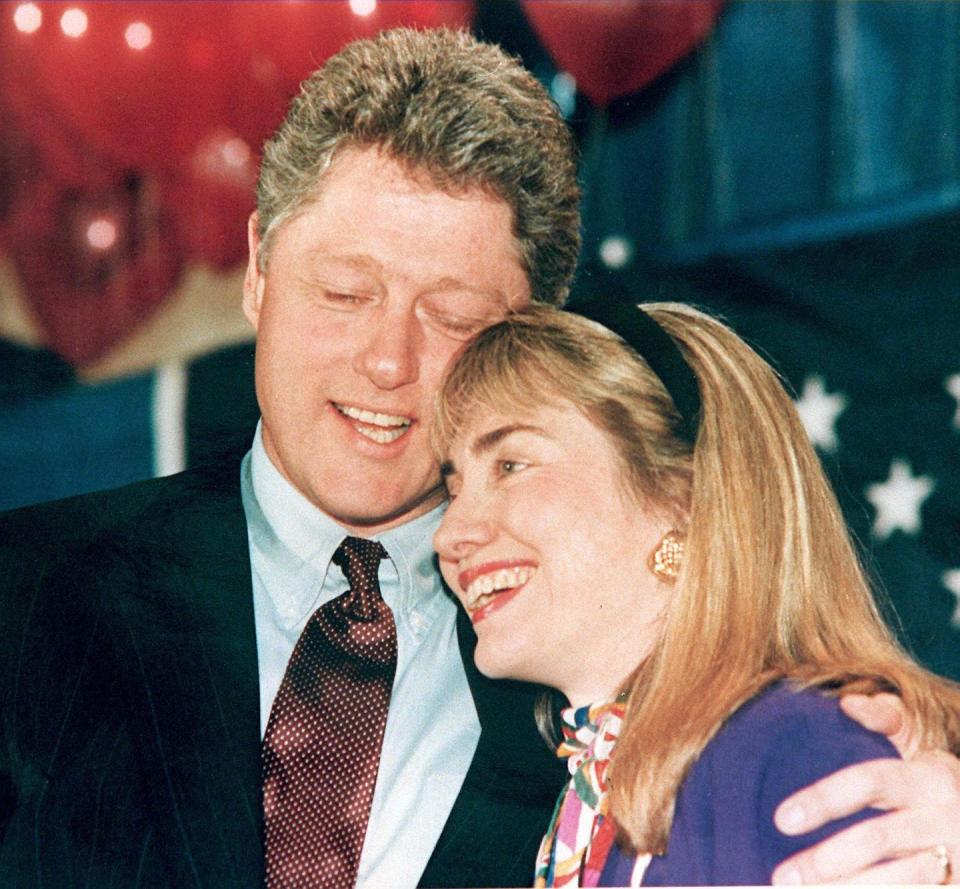
So, I think that I used real details when there were real timelines either because I felt like they were historically important or just very vivid and interesting and couldn't be improved upon by changing, or because I felt like they wouldn't have changed even if the Clintons hadn't gotten married.
It's like Clarence Thomas still would've been nominated to be on the Supreme Court whether or not Bill and Hillary got married. But would Bill have been elected president in 1992 if they hadn't gotten married? I think that's much more open to interpretation.
Bill is accused of a crime early in the book, and then the accuser tells Hillary. So, she knows about it even though charges aren't brought. Did you have any hesitations rewriting history in that way for somebody who is still living? Was that different than just writing that scene about a character who's completely fictional?
I will say that the section you're talking about is very influenced by the second season of the podcast, "Slow Burn." Have you listened to the second season of "Slow Burn?"
No, I haven't.
The last episode of that I would say very much influenced that section of Rodham. The behavior of Bill's that's more damning in the book is all grounded in real situations. So, if she wonders at a party if he's flirting with someone, that does not necessarily have a real life counterpart, but the more significant plot lines have real counterparts.
Right. But for the piece where Hillary is told directly from the woman, that took a turn which hasn't, as far as we know, happened in real life.
You should listen to the last episode of Slow Burn in Season Two. I would strongly recommend it
[Editor's note: The final episode of Season 2 of Slate's podcast Slow Burn tells the story of Juanita Broaddrick, who has accused Bill Clinton of raping her in 1978. Bill has denied the allegations. In a 2016 BuzzFeed interview, Broaddrick said Hillary shook her hand at a political rally and thanked her for what she'd done for Bill—which Broaddrick interpreted as a threat to remain silent.]
OK, I will. I was really in my mind going back and forth to my memory of reading American Wife, and reading Rodham and some of the sex scenes with the people's real names, to me, it felt like a different reading experience. Was it different writing something as intimate as a sex scene with people's real names?
I don't think that it felt that different for me, but I do understand why reading it would be different. In the novel, Hillary worked at a legal aid clinic... I have two female friends who are law professors. Both of my friends answered so many questions that I would ask about like, "If you work in a legal aid clinic and then you go into court, and then what are the words that come out of your mouth, and how many minutes are you interacting with the judge for? And if you go to see the client, what happens the first time?"… I sometimes would chuckle to myself as I was trying to wrap my head around family law or housing disputes in the early 1970s. I would think, "I already know that whenever I finally finish this book, I'm just going to end up talking about like, 'And then Bill put his tongue in my mouth.'" [Laughs.]
I totally understand it, but I probably shouldn't even say this, but it's not as if I picture my... It's not as if I think I'm watching my characters have sex. It's more like I feel like my job is to evoke from the inside how it feels to be really attracted to another person or how it feels to make out with another person for the first time.
But it would be disingenuous for me to be like, "What's the big deal?" I understand both sides of it.
When Donald Trump appears at the end of the book, the real-life things he's said are used in such a different way. Can you tell me about your reimagining of Donald Trump?
I was motivated to write this book for a few reasons. Certainly one of them was... It had been an interesting kind of intellectual and personal exercise to write the short story for Esquire. Another thing that I guess has not come up in our conversation is that I had the realization around the time of the 2016 election that school-age children who knew who Hillary was and potentially liked her, often literally did not know that Bill Clinton existed.
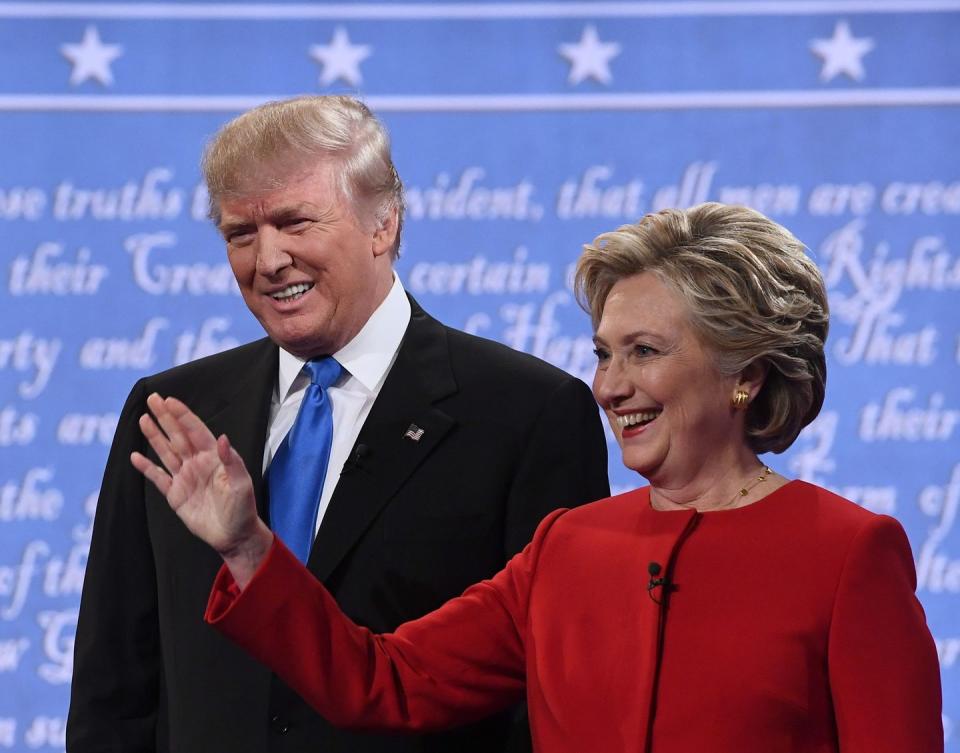
They didn't know she was married. They didn't know she was married to someone who had been president or who'd been controversial. I don't think I would've written an entire novel about the 2016 election as it really unfolded because I wouldn't have wanted to relive it. And I do feel like I did a version of that with American Wife and to entertain myself, I don't like to repeat exactly same thing over and over. So I do think in some ways I wrote this to try to partly transform the 2016 election into something else if only in a book or if only as a creative act. I understand that I had to not succeed in literally changing the outcome of the 2016... But I had to do it for myself as a creative act.
What I did was I would some would watch him on TV, watch clips of him online and transcribe them to get a feel for his language. And then I don't follow him on Twitter, but I would study his Tweets in a very deliberate way. There were moments when I would think, "Why am I voluntarily doing this?" It felt like exposure therapy, because I did feel as if I came out the other side of that. But I feel that I came out of it artistically; I did not come out of it politically. I still live in a country where he's president and so do lots of other people.
I always feel like I need to be careful about... Obviously, a lot of people are affected really negatively by his policies, by what he represents. So I don't know, the fact that I could create this artistic transformation doesn't change policies, and that's very clear to me. I'm not under any illusion.
Did fictionalizing Hillary throughout this process of writing the book change the way you thought about her?
I had a very favorable view of her going into this. And I don't think I would write a book about a real person if I didn't feel great fondness for them, because when you're a fiction writer you're sort of choosing who you spend time with in your imagination.
And I would say I think that the only way it changed is that it made me feel sort of emotionally close to her, which I recognize is not mutual. I recognize it's a one-way street. So, sometimes if I hear a speech of hers or something, I think, like, "That's my girl," or if something challenging or sad happens in her life, I feel more sad than I would have five years ago.
I do think that I have imagined what her daily life is like. It's not that anyone in her inner circle has ever confided in me or presumably ever would. But people might be like, "Oh, I met her once, and she was so gracious. It was a public event, and she was so well prepared in terms of knowing who I was and asking me this specific question, and she was a really good listener." So, I think that she is pretty deeply misunderstood.
I do want to say because I feel like this does not get said enough, that there are many Americans who really adore and respect Hillary. I think that her fans are sometimes taken for granted or underestimated, in part because it's largely women and girls. And so the fact that she has so many admirers, somehow it's not as meaningful as if those admirers were boys and men.
Have you met her?
I have not met her.
Do you have any idea how she feels about being fictionalized?
I have not heard, and I don't anticipate that I will. She was a senator, she was secretary of state, she ran for president, she's been depicted on Saturday Night Live by Amy Poehler and Kate McKinnon. I think that she is used to a level of scrutiny that most people are not, so I don't necessarily think that this... I think she'll be aware of the novel, but I don't think that it will loom large in her life.
Do you want her to read it?
If she wants to read it. I could've written a novel where it would be pretty likely that I would meet her. You know? This is not that novel. I really admire and respect her, but I also understand that you can't write whatever you want and show all this smooching, and then turn around and think like, "I'm sure she'll be overjoyed by this." I felt like my duty as a writer was to the story more than to her, so therefore it's not appropriate for me to then expect her to love the book.
Did you know how you wanted her story to end when you started writing the book?
Yeah. I didn't know everything I wanted to happen along the way, and there were ways that I revised it or there were surprises for me. But I think the broadest outlines of the book work were clear to me pretty early on.
This interview was edited and condensed for clarity.
You Might Also Like

